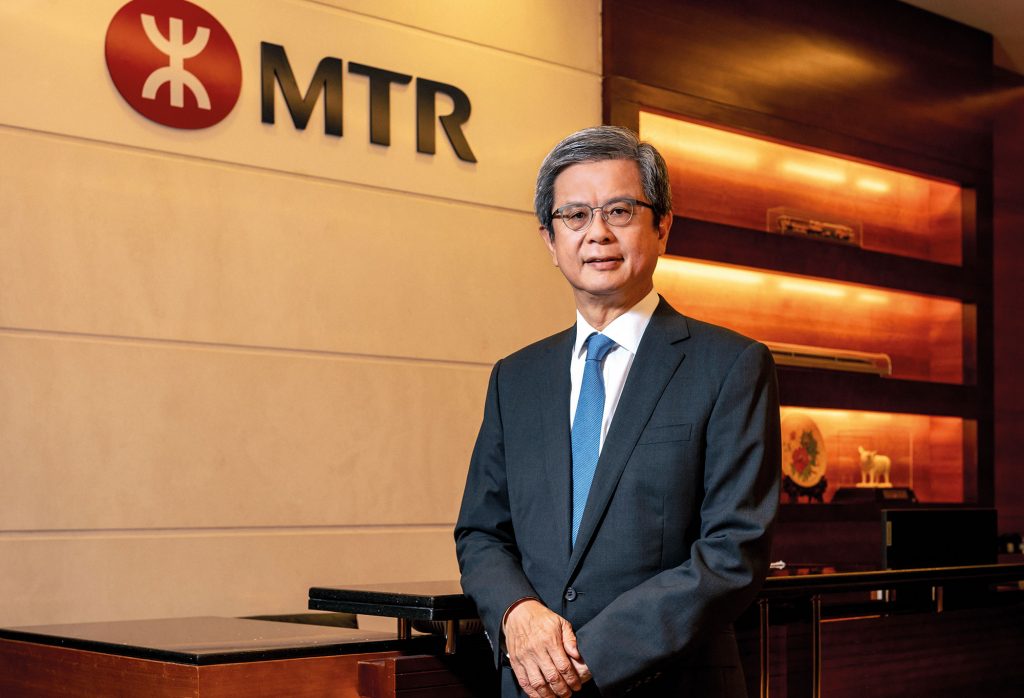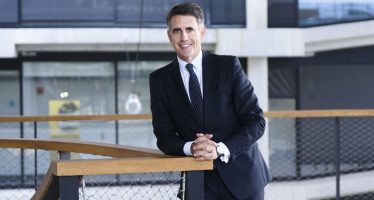MTR Corporation Finance Director Herbert Hui: Cool Head and Strong Hand at the MTR Tiller

MTR Finance Director: Herbert Hui
With diverse revenue streams, including fare- and non-fare revenues from its property business, MTR has been able to ride out challenging economic cycles since its first railway line opened in 1979.
The integrated Rail plus Property (R+P) business model, in which property developments support funding of railway construction and maintenance, had kept the company profitable since it was listed on the Stock Exchange of Hong Kong in the year 2000.
In 2020, in the midst of the pandemic, MTR recorded the first annual net loss in its history: HK$4.8bn ($620m).
With an investment banking and corporate finance career spanning three decades, MTR Corporation’s finance director Herbert Hui Leung-wah has the experience to take on challenges with confidence.
But nothing could have prepared him for the pandemic.
“We have always believed that fare revenue was a very reliable source of income, but that notion was challenged,” he said. “We experienced a 40 percent annual drop in fare revenue in 2020.
“On top of that, the recurrent and stable nature of collecting rents from station shop and shopping mall tenants was challenged. We needed to give out rental concessions and reduce rents on lease renewal. Duty-free shops are still unable to reopen because of the closure of cross-boundary checkpoints.”
With the overriding need to keep Hong Kong moving with a high-quality railway service, Hui and his team implemented a set of cost controls to strengthen short-term financial management.
“As we can’t control revenues in a pandemic situation, we need a good idea of the cash-flow pattern going forward, and how you manage that. One of the things we did was to raise a very successful 10-year green bond in August 2020 — the largest for a corporate in Asia, amounting to $1.2bn. That reaffirmed our commitment to ESG, riding on MTR as a low-carbon, green form of transport. It also provided additional funds to reinvest into our system.”
MTR returned to profitability in the first half of 2021, with an interim net profit of HK$2.7bn ($350m). The company maintained its dividend to shareholders throughout the pandemic —at the same level as in 2019.
Hui was appointed as MTR’s finance director in 2016. Before that he was the company’s general manager for corporate finance from 2004 to 2011, when he spent much of his time working on the milestone merger between MTR and the Kowloon-Canton Railway Corporation.
He began his career at Morgan Stanley before moving on to HSBC as an investment banker, involved in pioneering transactions to reform and open-up the Chinese economy. Hui worked on the first batch of listings of H shares (shares of state-owned enterprises incorporated in mainland China) on the Stock Exchange of Hong Kong in 1993.
“This was eye-opening to me as a Hong Konger, being at the forefront of state-enterprise reform,” he said. “It’s been exciting to witness China’s development over the decades and see where the country has come to. These experiences also helped me to develop a wider perspective beyond Hong Kong.”
After his first stint at MTR, he held CFO roles at Digital China Holdings Ltd, a mainland private enterprise, as well as K Wah International Holdings, a Hong Kong family-owned company. Hui was voted Best CFO in Hong Kong in an Asia’s Best Companies 2015 poll conducted by FinanceAsia.
Working under MTR’s CEO Jacob Kam with fellow executive team members, Hui’s experience and expertise have been instrumental in guiding MTR safely through the most challenging period in its history.
You may have an interest in also reading…
First Registrars & Investor Services Limited: Thriving in a Challenging World
Business, around the world, is no longer “as usual”. With some of the recent challenges, it has become a question
Türkiye in the Economic Spotlight: Globalturk Capital Keeps the Focus on the Country’s Growing Status
A growing body of international luminaries, government ministers and experts are taking note of Türkiye’s rise in international economic affairs.
BBVA Asset Management: Going Global in the Battle to Bring Sustainability to the Wider World of Investment
Spanish bank BBVA is working on a global strategy which will affect all of its investment solutions. BBVA Asset Management

















































































